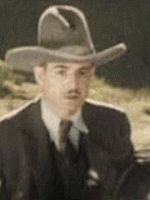The Cohens and the Kellys in Scotland is a american film of genre Comedy directed by William James Craft released in USA on 1 march 1930 with Charles Murray
The Cohens and the Kellys in Scotland (1930)
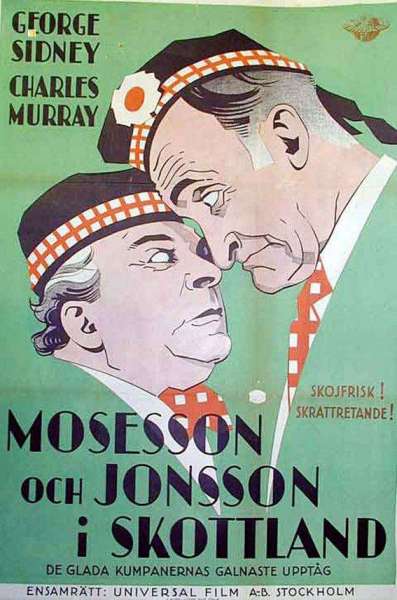
If you like this film, let us know!
The Cohens and the Kellys in Scotland is a 1930 American comedy film. It is one of The Cohens and the Kellys series.
Actors
Comments
Leave comment :
Suggestions of similar film to The Cohens and the Kellys in Scotland
There are 95 films with the same actors, 21 films with the same director, 37205 with the same cinematographic genres, to have finally 70 suggestions of similar films.If you liked The Cohens and the Kellys in Scotland, you will probably like those similar films :
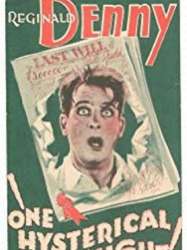
One Hysterical Night (1929)
Directed by William James Craft
Origin USA
Genres Comedy, Romance
Actors Reginald Denny, Nora Lane, Edward J. Ratcliffe, Fritz Feld, Slim Summerville, Walter Brennan
Rating54%





A wealthy man dresses up as Napoleon for a fancy dress ball, but is instead detained in a lunatic asylum where they suspect him of having delusions of grandeur.

Skinner Steps Out (1929)
, 1h10Directed by William James Craft
Genres Comedy
Actors Glenn Tryon, Merna Kennedy, Edward J. Ratcliffe, Burr McIntosh, Lloyd Whitlock, William Welsh
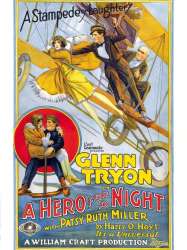
A Hero for a Night (1927)
, 1hDirected by William James Craft
Origin USA
Genres Comedy
Themes Transport films, Aviation films
Actors Glenn Tryon, Patsy Ruth Miller
Rating62%






Honeymoon Lane (1931)
, 1h11Directed by William James Craft
Origin USA
Genres Comedy
Actors June Collyer, Raymond Hatton, Noah Beery Sr., Mary Carr, Armand Kaliz, Lloyd Whitlock

Dames Ahoy (1930)
, 1h4Directed by William James Craft
Origin USA
Genres Comedy, Romance
Actors Glenn Tryon, Otis Harlan, Eddie Gribbon, Gertrude Astor, Walter Brennan, Edmund F. Cobb
Rating62%





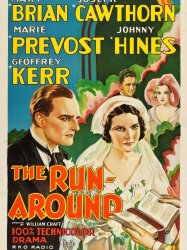
The Runaround (1931)
, 1h22Directed by William James Craft
Origin USA
Genres Drama, Comedy, Comedy-drama, Musical, Romance
Themes Musical films
Actors Mary Brian, Geoffrey Kerr, Marie Prevost, Joseph Cawthorn, George Irving, Johnny Hines
Millionaire playboy Fred White is attempting to make chorus girl Evelyn his latest conquest. Evelyn, on to Fred's scheming, has some scheming of her own, attempting to maneuver Fred into marriage. In a last ditch effort to get Evelyn into bed, Fred purchases a diamond bracelet, to which he has attached a key to the apartment he has leased as their potential love nest. When he shows the bracelet to his friend, Howard, the friend warns Fred that Evelyn is simply a gold-digger, only interested in getting him to marry her so that she can gain access to his money. The two make a bet. If Fred wins by getting her to be his kept woman, Howard has to pay for the bracelet and the cost of the apartment, and if Howard wins, by rejecting Fred's non-marital advances, Fred will owe Howard the same amount of money.

See America Thirst (1930)
, 1h15Directed by William James Craft
Origin USA
Genres Comedy, Action, Crime
Actors Harry Langdon, Slim Summerville, Bessie Love, Mitchell Lewis, Matthew Betz, Stanley Fields
Rating54%






The Clown (1927)
, 57minutesDirected by William James Craft
Origin USA
Genres Drama, Crime
Actors Dorothy Revier, William V. Mong, Johnnie Walker, John Miljan, Charlotte Walker

Directed by Vin Moore
Origin USA
Genres Comedy
Actors Charles Murray, Kate Price, Lloyd Whitlock, Nick Cogley, Eddie Kane
Rating47%






The Cohens and Kellys (1926)
, 1h20Directed by Harry A. Pollard
Origin USA
Genres Comedy
Actors Charles Murray, Kate Price, Jason Robards Sr., Olive Hasbrouck, Nat Carr
Rating62%





As articulated in the Nichols case, The Cohens and The [sic] Kellys presents two families, Jewish and Irish, living side by side in the poorer quarters of New York in a state of perpetual enmity. The wives in both cases are still living, and share in the mutual animosity, as do two small sons, and even the respective dogs. The Jews have a daughter, the Irish a son; the Jewish father is in the clothing business; the Irishman is a policeman. The children are in love with each other, and secretly marry, apparently after the play opens. The Jew, being in great financial straits, learns from a lawyer that he has fallen heir to a large fortune from a great-aunt, and moves into a great house, fitted luxuriously. Here he and his family live in vulgar ostentation, and here the Irish boy seeks out his Jewish bride, and is chased away by the angry father. The Jew then abuses the Irishman over the telephone, and both become hysterically excited. The extremity of his feelings makes the Jew sick, so that he must go to Florida for a rest, just before which the daughter discloses her marriage to her mother. On his return, the Jew finds that his daughter has borne a child; at first he suspects the lawyer, but eventually learns the truth and is overcome with anger at such a low alliance. Meanwhile, the Irish family who have been forbidden to see the grandchild, go to the Jew's house, and after a violent scene between the two fathers in which the Jew disowns his daughter, who decides to go back with her husband, the Irishman takes her back with her baby to his own poor lodgings. The lawyer, who had hoped to marry the Jew's daughter, seeing his plan foiled, tells the Jew that his fortune really belongs to the Irishman, who was also related to the dead woman, but offers to conceal his knowledge, if the Jew will share the loot. This the Jew repudiates, and, leaving the astonished lawyer, walks through the rain to his enemy's house to surrender the property. He arrives in great dejection, tells the truth, and abjectly turns to leave. A reconciliation ensues, the Irishman agreeing to share with him equally. The Jew shows some interest in his grandchild, though this is at most a minor motive in the reconciliation, and the curtain falls while the two are in their cups, the Jew insisting that in the firm name for the business, which they are to carry on jointly, his name shall stand first.
 Connection
Connection



